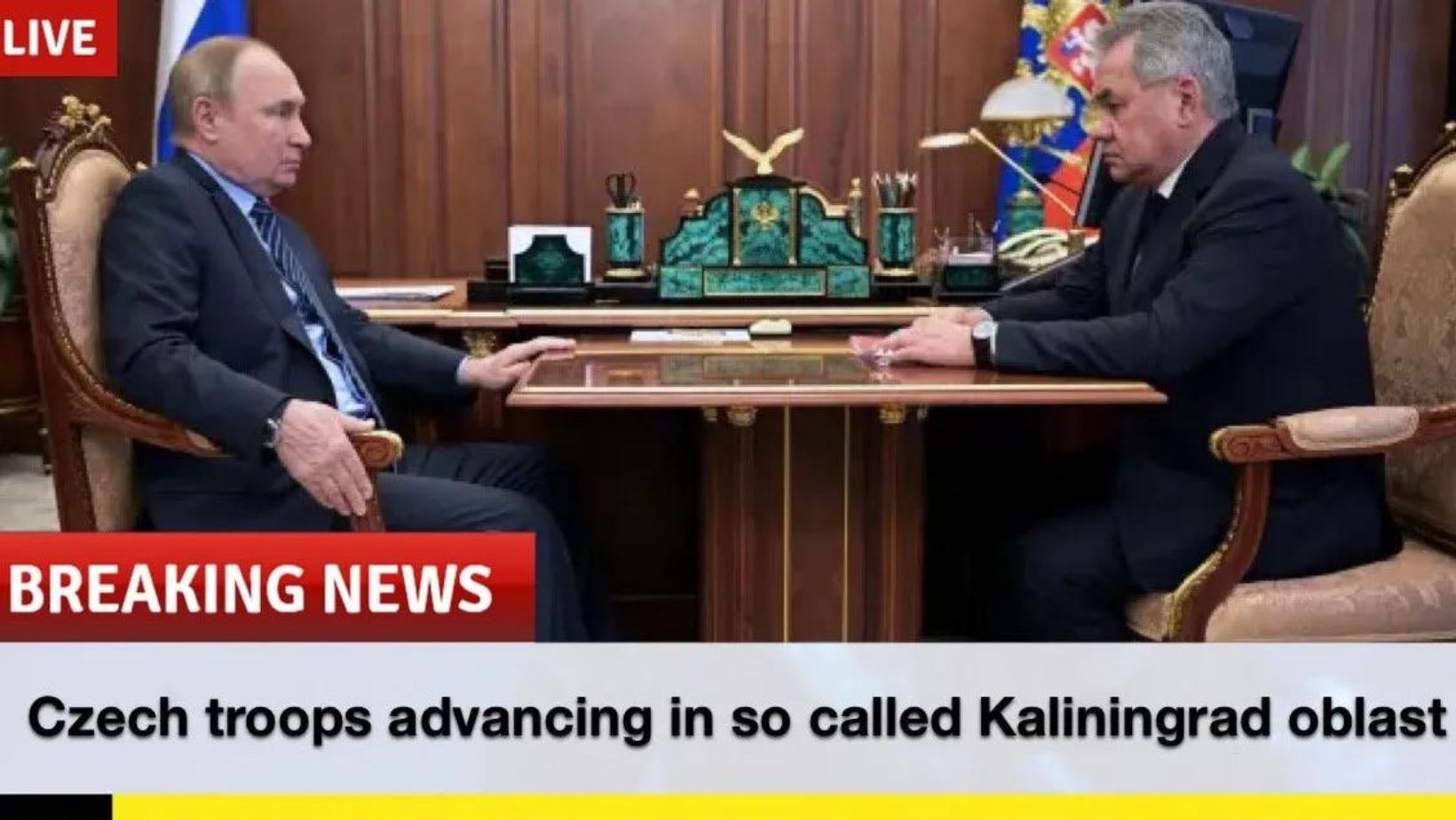Over the past several days, Czech social media users have been sharing humorous tweets, and tweaked maps showing that the Russian exclave of Kaliningrad is, in fact, historically Czech and that a referendum should be held to decide the date of the problematic 220-square-kilometer region.
As reported by iDnes on Monday, Czech MEP Tomasz Zdechovsky shared a satirical joke on his Twitter about the distribution of the Russian Kaliningrad region between Poland and the Czech Republic.
In particular, the politician reposted a tweet from an anonymous author from Poland.
“The time has come to divide Kaliningrad so that our Czech brothers finally have access to the sea,” the original note says.
In Russia, this joke has already been called a “revanchist statement.”
Zdekhovsky replied that Russia should be prepared for the fact that if it tries to annex foreign territory on the basis of fake referendums, this could provoke discussions about whether it should leave Kaliningrad.
“I believe that the debate is legitimate and that Russia should really consider its future international moves,” he stressed.
“Je čas rozdělit Kaliningrad, aby naši čeští bratři měli konečně přístup k moři”
A pak nemilujte Polaky 😄 https://t.co/hLhyBDZQJm
— Tomáš Zdechovský (@TomasZdechovsky) September 29, 2022
The politician added that the city was originally founded in honor of the Czech king Přemysl Otakar II. Zdekhovsky also said that he was not surprised that his joke was taken seriously in Russia.
“I think the Russians take themselves too seriously, both in terms of politics and in terms of international relations. We need to hold a mirror to them more and show that we are not afraid of them and their threats and that we are ready to support Ukraine in its struggle for the return of all territories,” summed up the Czech MEP.
Later that same day, a newly created Twitter account @KralovecCzechia announced the success of the initiative: “After a successful referendum, 97,9% of Kaliningrad residents decided to merge with the Czech Republic and rename Kaliningrad to Královec.”
“King’s Mountain” through history
The Russian exclave of Kaliningrad on the Baltic Sea is sandwiched between Poland to the south and Lithuania to the north and east.
Annexed from Germany in 1945, the territory was a closed military zone throughout the Soviet period.
Koenigsberg, as the city of Kaliningrad was once known, was founded by Teutonic knights in the 13th century. It became one of the cities of the Hanseatic League and was once the capital of Prussia. The philosopher Immanuel Kant spent all his life in the city and died there in 1804.
The region was part of Germany until annexation by the USSR following World War II when it saw bitter fighting and suffered extensive destruction. The German population was expelled or fled after the war ended.
During the Soviet period, Kaliningrad Region, administratively part of the Russian Federation, was separated from the rest of Russia, more than 300km to the east, by the then Soviet republics of Lithuania, Latvia and Belarus.
Kaliningrad was one of the most militarised and closed parts of the Soviet Union, and the military were the region’s chief economic mainstay in the Soviet years. When the USSR ceased to be, that military presence was decimated along with the economic benefits it provided.
Kaliningrad is still of great strategic importance to Moscow. It houses the Russian Baltic Fleet at the port of Baltiysk and is the country’s only ice-free European port.
Support Prague Morning!
We are proud to provide our readers from around the world with independent, and unbiased news for free.
Our dedicated team supports the local community, foreign residents and visitors of all nationalities through our website, social media and newsletter.
We appreciate that not everyone can afford to pay for our services but if you are able to, we ask you to support Prague Morning by making a contribution – no matter how small 🙂 .




